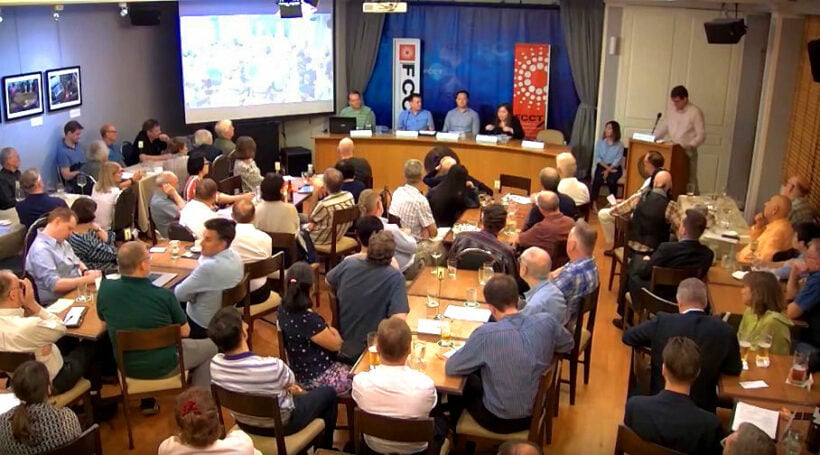Thai Immigration bristles about TM30 revolt as it copes with PR disaster

The TM30 form, as well as the associated TM28 form, have now become a huge public relations liability for the Thai Immigration Department.
The more questions asked, and the more explanations by well-intentioned Immigration officials, the more confusing the whole matter becomes.
If the policy is intended to make Thailand safer and make foreigners feel more secure, the opposite is happening. And now the story is catching on in foreign media, the situation is becoming a minor PR disaster for Thailand where tourism authorities would much prefer to be showing off the beaches and temples.
Over the weekend foreigners scratched their head after another week of contradictory forums, panel discussions, thousands of comments on social media and confusing responses from Immigration officials. Last Thursday’s forum at the Foreign Correspondents’ Club of Thailand included senior Thai immigration officials and was meant to ‘clear the air’ on many of the issues.
Whilst mostly flying beneath the radar, quietly legally working, living their lives on a pension or spending months of a year in the Kingdom, foreign expats say they now feel targeted in a well-intentioned, but poorly executed, security initiative.
Officials hammered home the importance of ‘national security’ whilst failing to understand the concerns of long-term, legal and ‘nice’ foreigners who simply wished to live in the Kingdom without too much fuss.
The Immigration staff gave no clear indication if they took the suggestions and general discussion seriously or how they could address some of the more cumbersome and onerous conditions applied by the TM30 and TM28 forms. But they did say there was no timeline to examine any of these issues.
On the books for 40 years, but not rigorously enforced until March this year, the TM30 form requires Thai landlords providing accommodation to foreigners to report their arrival and departure to immigration within 24 hours.
Long-termers, foreign retirees, foreigners married to Thais, and foreigners travelling a lot for work, etc must also report their whereabouts within 24 hours with the TM28 form when they stay overnight at locations other than their registered primary residence. That would include visiting an hour away, in another province or arriving back from overseas.
According to the Immigration officials attending the panel discussion, they kept saying the process is ‘easy’. They were challenged repeatedly by other panel members and some of the audience, a number of times clearly taken aback by the nature of the questioning and the litany of frustration being shared with them. They were saying that it was not only ‘not easy’ but also confusing.
Some of the people in the audience threw up example after example of unworkable situations with the current enforcement and sought clarification that was not forthcoming.
Richard Barrow, a popular blogger and long-termer offered his reflection on Thai immigration enforcing the TM30 and TM28 sections of the 1979 Immigration Act.
“The landlord has to register foreigners within 24 hours. The problem is the landlord might have 10-15 units. It is a lot of work for them to keep registering foreigners every time they come back from a trip. Sometimes, the landlord is not even in the same city or country.”
“Now some apartment blocks are putting up signs saying ‘no foreigners’ because they don’t want the hassle.”
For foreigner staying in Thailand, you should prepare…
- A copy of foreigner’s passport photo page
- A copy of the visa page
- A copy of latest entry page and
- A copy of the immigration departure card
The landlord should prepare…
- A copy of the title deed of the property
- A copy of the rental contract
- A copy of ID card and hose registration of owner
- Power of attorney (POA) appoint authorised person Thai/Foreigner to report TM30
- The completed TM30 form
There are three ways the owner or lessor of the residence can file the TM30…
- Filing directly at the Immigration Bureau or related Immigration Office located in the area of residence.
- File by registered post mail (at the Post Office).
- File by internet. Note: the notifier must first register at https://immigration.go.th/index and obtain a username and password before being able to do this online. If the owner or lessor of the residence is current obligate to pay an outstanding fine, this online process will not be available.

Latest Thailand News
Follow The Thaiger on Google News:


























